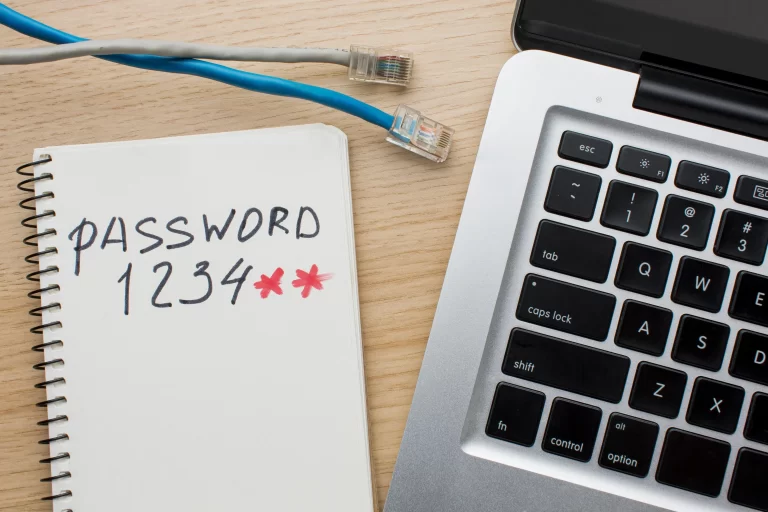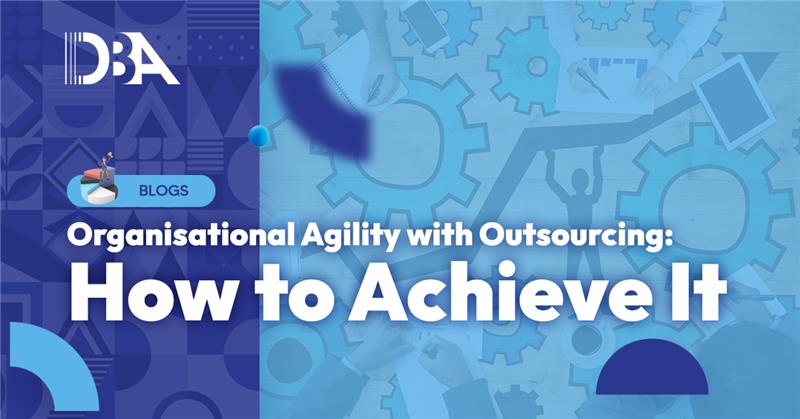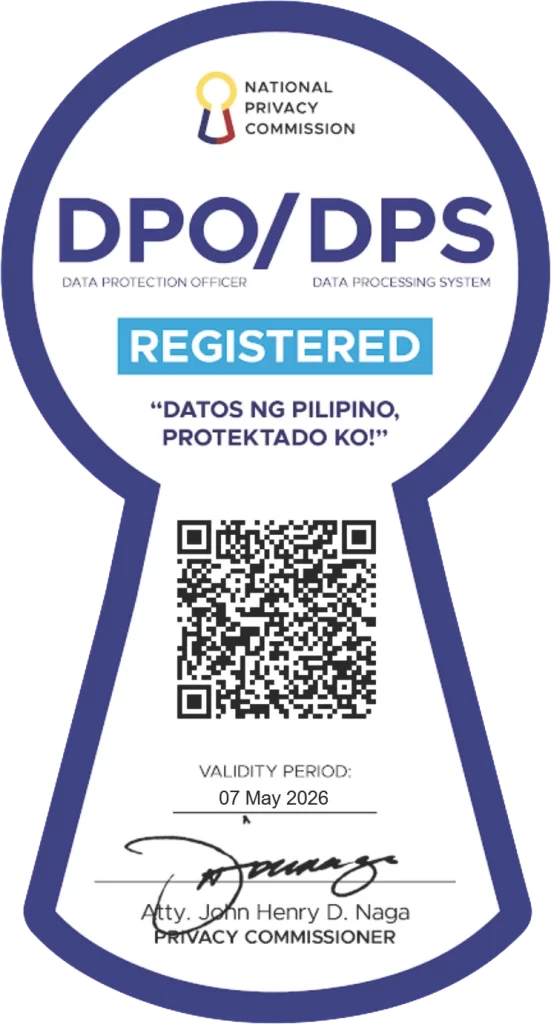Protecting sensitive information is a top priority for businesses and individuals nowadays.
With cyber threats becoming more sophisticated by the day, passwords alone are no longer considered sufficient to protect data. Hence, strategising robust password management has become a cornerstone of a solid cybersecurity strategy. In fact, implementing robust password policies and MFA can significantly reduce the risk of unauthorised access and data breaches.
The Importance of Strong Passwords

Passwords act as the initial barrier to prevent unauthorised access to online accounts and systems. However, as hackers become more skilled and sophisticated, relying solely on passwords can leave your organisation vulnerable. In fact, the annual global cost of cybercrime is projected to exceed $23 trillion by 2027.
A strong password typically involves the following characteristics:
- Length: The longer the password, the harder it is to crack. Hence, you should use passwords that are at least 12 characters long.
- Complexity: A combination of uppercase and lowercase letters, numbers, and special characters reduces the likelihood of your password being guessed or cracked through brute force attacks.
- Unpredictability: Avoid common phrases, predictable patterns, or easily guessable information such as name or birthdate.
- Uniqueness: Each of your accounts should have its own password. Reusing passwords across multiple sites increases the risk that a breach on one site will lead to breaches on others.
Annual global cost of cybercrime is projected to exceed $23 trillion by 2027.
What is Multi-Factor Authentication (MFA)?
Multi-Factor Authentication (MFA) is a security protocol that mandates users to provide two or more forms of verification prior to accessing an account or system. This added layer of protection ensures that even if one factor, such as a password, is compromised, unauthorised access remains blocked.
Best Practices for Strategising Robust Password Management

While strong passwords and MFA are essential for safeguarding digital assets, the way they are implemented plays a key role in their effectiveness. Below are some best practices for strategising robust password management and MFA implementation successfully:
1. Enforce Strong Password Policies
Implement a well-defined password policy across all systems and accounts. This policy should mandate the use of strong, unique passwords. Moreover, it should specify minimum password length, complexity requirements, and expiration periods.
Some specific recommendations for strategising robust password include:
- Password Length and Complexity: As mentioned earlier, passwords should be at least 12 characters long and include a mix of uppercase and lowercase letters, numbers, and special characters. Avoid dictionary words and common phrases.
- Password Expiry: While overly frequent password changes may be burdensome, it is essential to require periodic updates to passwords. Typically, every 60 to 90 days is a reasonable timeframe.
- Password History: Enforce rules that prevent users from reusing their previous passwords. This ensures that passwords are continually refreshed and prevents attackers from exploiting old passwords.
2. Utilise Multi-Factor Authentication (MFA) Whenever Possible
MFA should not be viewed as an optional security feature, rather, it should be a mandatory part of your security strategy for any service or application that supports it. Many organisations already implement MFA for critical applications like email, banking, and cloud storage. However, it should be expanded to other systems, especially those that handle sensitive data.
There are several types of MFA methods for you to consider:
- SMS or Email-based MFA: A one-time passcode (OTP) is sent via text message or email. While convenient, SMS-based authentication can be vulnerable to SIM-swapping attacks, so use more secure options if available.
- Authenticator Apps: These apps are more secure than SMS-based methods, as the authentication codes are stored locally on the device and are not subject to interception.
- Hardware Tokens: Hardware tokens are resistant to phishing and man-in-the-middle attacks, making them one of the most secure MFA options.
- Biometric Authentication: Fingerprints, facial recognition, and retina scans are increasingly used as part of the MFA process. While not foolproof, biometric authentication offers a high level of security combined with ease of use.
3. Educate Employees and Users

User awareness and education are crucial to the success of any password or MFA strategy. Many security breaches occur due to human error, such as falling for phishing attacks or using weak passwords. To improve security, organisations should:
- Conduct regular cybersecurity training sessions to educate employees about the importance of strong passwords and MFA.
- Run simulated phishing campaigns to teach users how to recognise phishing emails and avoid falling victim to them.
- Promote the use of password managers, which can create and store complex, unique passwords for every account. This helps users avoid password fatigue while maintaining strong security practices.
4. Monitor and Review Authentication Practices Regularly
Once robust password policies and multi-factor authentication (MFA) has been implemented, it is important to continuously monitor and review authentication practices. Regular audits can also help identify weaknesses or non-compliance with security standards.
This includes keeping track of failed login attempts, especially when MFA is bypassed or when unusual access patterns are detected. It also involves prompting users to update their credentials if a security breach is detected or passwords are compromised. In such cases, users should be immediately asked to change their passwords and re-enable MFA for their accounts.
5. Adopt the Principle of Least Privilege (POLP)
Even with strong passwords and MFA, the principle of least privilege remain crucial. Granting users the minimum level of access required to perform their jobs reduces the potential damage caused by a compromised account. In addition, implement role-based access controls (RBAC) and regularly review user access permissions to ensure they align with current needs.
A well-defined password policy should be implemented across all systems and accounts.
Establish a Secure Digital Environment with DBA

In today’s digital age, strategising robust password management and MFA implementation are non-negotiable elements of any cybersecurity strategy. Cybersecurity is not a one-time fix; it requires continuous effort and smart strategies.
At DBA, we embrace a cybersecurity-first approach. It is the foundation of every service we offer and every decision we make. We integrate security best practices into our infrastructure like strategising robust password management, development of efficient workflows, and client solutions. This proactive mindset drives us to continuously evaluate emerging threats, adapt to evolving risks, and implement innovative technologies.

Gillian Delos Reyes, MBA, LCB, DMP

Gillian Delos Reyes, MBA, LCB, DMP
Share







© 2024 DBA. All Rights Reserved.







